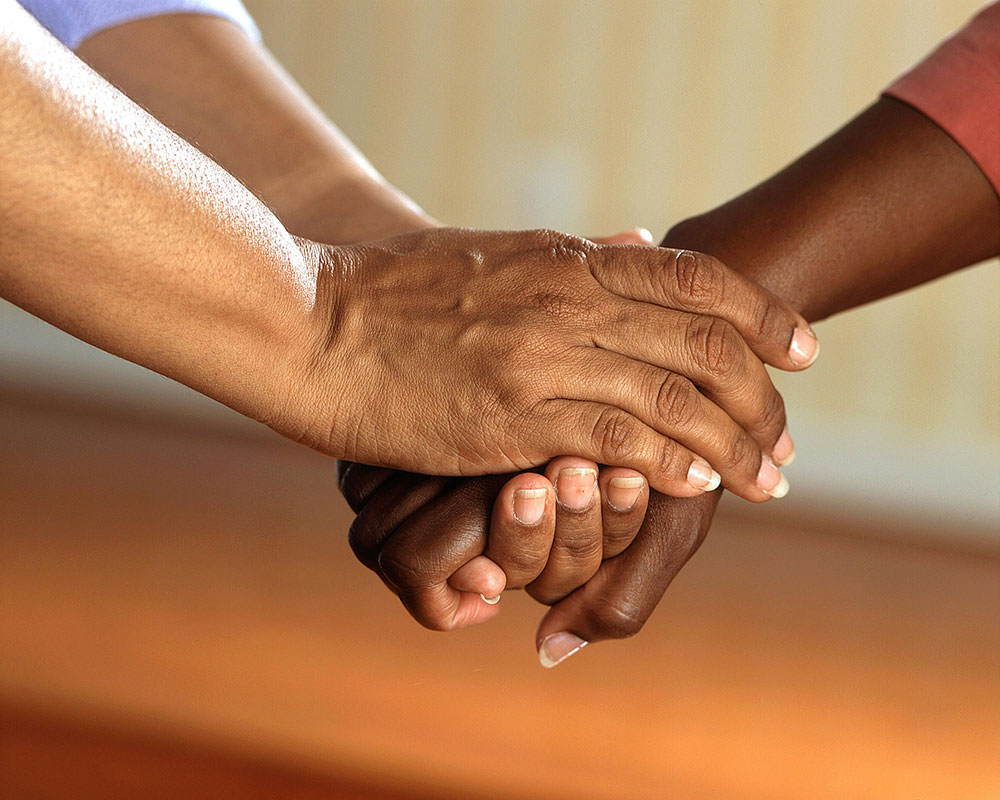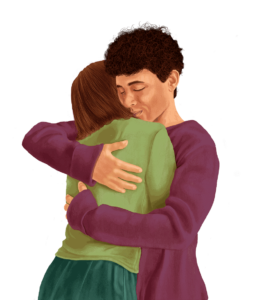Are you constantly asking yourself where to find ‘eating disorder support groups near me’? Battling an eating disorder can be incredibly challenging for both the afflicted person and their loved ones. This fight often leads to feelings of isolation, shame, and confusion, exacerbating the disorder’s effects. But what if I told you, you don’t have to face this struggle alone?
Here at Core Recovery, we understand the isolation that can come with grappling with an eating disorder. We also appreciate the vital role that support groups can play on the road to recovery. Eating disorder support groups are critical spaces where you can share your journey in a non-judgmental, understanding environment. They provide priceless peer support, a platform to learn from others’ experiences, and a trenchant supplement to professional treatment.
Finding Eating Disorder Support Groups Near You
- Location: Look for support groups in your local community or online platforms.
- Structure: Choose between non-professional (peer-led) and professional (therapist-led) support groups based on your comfort level.
- Properties: Check if the group is a safe, non-judgmental space that respects the privacy of its members.
- Compatibility: Make sure the group’s philosophy aligns with your recovery journey.
Beyond the struggle, the fear, and the confusion, remember that you, like millions of people worldwide, can successfully navigate the path to recovery. You are not alone in this journey, and finding a local support group can be the pivotal first step to healing and reclaiming your life. Join us as we explore how to find the right ‘eating disorder support groups near me’ and take a thorough look at their role in your recovery journey.
Understanding Eating Disorders: Anorexia, Bulimia, Binge Eating Disorder, and OSFED
Eating disorders are serious, sometimes life-threatening conditions that impact psychological and physical health. They involve severe disturbances in eating behaviors and are often characterized by obsessive thoughts about body weight or shape. These disorders affect millions of people around the world and do not discriminate based on age, gender, race, or sexuality. In the U.S alone, over 30 million people struggle with an eating disorder at some point in their life.
At Core Recovery, we recognize four primary types of eating disorders: Anorexia Nervosa, Bulimia Nervosa, Binge Eating Disorder, and Other Specified Feeding or Eating Disorder (OSFED).
Anorexia Nervosa is marked by an intense fear of gaining weight, leading to self-starvation and excessive weight loss. Individuals with anorexia often have a distorted body image and may go to extreme lengths to control their weight and shape.
Bulimia Nervosa involves periods of uncontrolled, impulsive, or continuous eating, known as bingeing. This is followed by some form of purging, such as vomiting, fasting, excessive use of laxatives/diuretics, or excessive exercise.
Binge Eating Disorder is the most common eating disorder in the U.S. Individuals with this disorder have frequent episodes of consuming very large amounts of food but without behaviors to prevent weight gain, such as induced vomiting.
Other Specified Feeding or Eating Disorder (OSFED) is a category that includes individuals who do not meet the exact criteria for anorexia, bulimia, or binge eating disorder but still have a significant eating disorder.
These disorders are influenced by a combination of genetic, biological, psychological, and environmental factors. They are serious medical illnesses, not a choice, and can be deadly. Many people suffering from eating disorders experience overlapping symptoms of common diagnoses.
At Core Recovery, we understand the complexity of these disorders and offer a variety of treatment options, including support groups, to help individuals in their recovery journey. Our expert, Jillian Vanselow, emphasizes that early intervention is key to a successful recovery.
It’s always important to seek professional help if you or someone you know is struggling with an eating disorder. Support groups can be an essential part of recovery, but they are not a substitute for professional treatment.
The Role of Support Groups in Eating Disorder Treatment
An integral part of the journey towards recovery from an eating disorder is accessing supportive resources such as support groups. These forums are especially beneficial as they provide a platform for individuals to share personal experiences and learn from each other in a non-judgmental environment.
Peer Support and Empathy in Eating Disorder Recovery
For those battling eating disorders, understanding and empathy from peers can be a lifeline. Eating disorder support groups facilitate peer connection and help individuals feel less alone in their struggles. As bereavement specialist Joanne Cacciatore states, “There simply is no pill that can replace human connection… the answer to human suffering is both within us and between us”. These support groups provide a safe space for open discussion about personal struggles, a crucial step for individuals longing to feel seen, understood, and supported.
Learning from Others’ Experiences: The Power of Shared Stories
In addition to empathy and understanding, support groups provide a platform for the exchange of personal stories. The power of shared experiences cannot be underestimated in the journey towards recovery. Hearing about the struggles and triumphs of others can inspire hope and provide practical strategies for overcoming challenges. Moreover, it encourages individuals to share their own experiences, which can be therapeutic and empowering.
Support Groups as a Complement to Professional Treatment
While support groups play a critical role in the recovery process, they should not be seen as a substitute for professional treatment. At Core Recovery, we believe that support groups are most effective when used in conjunction with professional services like individual therapy, psychiatrist services, and dietetic support. The non-professional nature of these groups, although fostering closer connections and openness, can sometimes lack the necessary accountability and expertise to fully address the complexities of eating disorders. Therefore, balance support group attendance with professional treatment for the most effective recovery journey.
As you search for ‘eating disorder support groups near me’, remember that finding the right group is a personal journey. It’s okay to explore different groups until you find one that suits your needs and is aligned with your recovery goals. Always be aware of the content and messaging of any group you attend, and don’t hesitate to seek another community if one feels triggering to you.
At Core Recovery, we are committed to guiding you on your journey towards recovery. Alongside our professional treatment services, we support the use of support groups as a key part of your holistic recovery plan. Contact us today to learn more about how we can assist you on your path to wellness.
Finding the Right Support Group for You
Finding the right support group is a crucial step in your recovery journey. Support groups can provide a sense of community, shared experiences, and peer-led guidance. However, find a group that resonates with you and facilitates your progress towards recovery.
Criteria for Choosing an Eating Disorder Support Group
When searching for ‘eating disorder support groups near me’, consider the following criteria:
- Leadership: The best support groups are led or facilitated by trained professionals or experienced peers.
- Content: Opt for groups that promote recovery and discourage harmful behaviors or triggering discussions.
- Demographics: Ensure the group caters to your age group, gender, or specific eating disorder type to align better with your experiences and needs.
- Size: Smaller groups may encourage more intimate and open discussions.
- Format: Decide whether you prefer an in-person group or an online forum based on your comfort and convenience.
The Benefits and Limitations of Online Support Groups
Online support groups, like the ones provided by the Eating Recovery Center, offer a wide range of benefits. They provide a sense of community and peer support from the comfort of your own home. They are particularly beneficial for those who may not have access to local in-person groups or feel more comfortable sharing in a virtual space.
However, online groups also have limitations. They may lack the personal connection and immediacy of in-person groups. Also, without professional facilitation, they can sometimes veer off track or become less supportive and more triggering.
How Core Recovery’s Integrated Care Model Can Help
At Core Recovery, we understand the importance of a support system in your recovery journey. Our integrated care model combines individual therapy, group therapy, and support groups for a comprehensive treatment plan tailored to your needs.
Our support groups provide a safe, empathetic space for you to share your experiences and learn from others who are on similar journeys. Alongside our professional treatment services, our support groups are a key part of your holistic recovery plan.
Finding the right support group can be a transformative step in your recovery journey. It’s about finding a community that understands your struggles and supports your path towards healing. You’re not alone in this journey, and with the right tools and support, you can reclaim control of your life.
Contact us at Core Recovery to take the first step towards a healthier, happier future.
Exploring Specific Eating Disorder Support Groups
In your journey to recovery, it’s crucial to find the right support group that aligns with your needs and circumstances. Let’s explore different types of eating disorder support groups available to you.
Free Online Support Groups: Center for Discovery and Discovery Mood & Anxiety
The advent of digital technology has made it possible for individuals to access support from the comfort of their homes. Center for Discovery and Discovery Mood & Anxiety provide free online support groups for individuals impacted by eating disorders.
These groups operate via a secure, HIPPA-compliant Zoom video conference platform, ensuring your privacy and confidentiality. Participants can choose to remain anonymous during the sessions. These platforms provide peer support; however, they are not meant to replace professional treatment.
Therapist-Led Support Groups: The Alliance for Eating Disorders
The Alliance for Eating Disorders offers free, weekly, therapist-led eating disorder support groups, both virtually and in-person. These communities decrease feelings of isolation, provide a sense of belonging, and create an environment of acceptance. They offer a safe space for individuals to share their experiences and feel seen, heard, supported, and valued.
Clinician-Facilitated Support Groups: Eating Recovery Center
The Eating Recovery Center offers clinician-facilitated support groups for individuals struggling with eating disorders. These groups provide an opportunity for individuals to connect with others who share similar experiences, promoting mutual support and understanding.
Core Recovery and Your Support Group Needs
At Core Recovery, we understand the importance of support in the journey to recovery. We provide extensive resources to help you find the right support group. Whether you’re stepping down from a more intensive program, seeking treatment for the first time, or looking for ‘eating disorder support groups near me’, we’re here to guide you on your healing journey.
To learn more about our services and how we can support your recovery, contact us today.
Support for Family Members and Loved Ones of Individuals with Eating Disorders
The journey to recovery from an eating disorder is not only challenging for the individuals battling the disorder, but also for their loved ones. Family members and friends often play a crucial role in the recovery process, yet they may feel overwhelmed and unsure of how to provide the right support. This is why support groups are not only essential for those with an eating disorder, but also for their loved ones.
Support groups provide a safe and understanding environment for family members to share their experiences and feelings. They offer a space to discuss emotions such as resentment or frustration, which they may feel guilty expressing directly to their loved one struggling with the disorder. It’s natural to have conflicting feelings when your life, and the life of someone you love, become dictated by a disease. Support groups allow these emotions to be expressed and processed, preventing them from leading to deeper resentment and negatively impacting relationships.
Family members often report feeling isolated and unsure of how to talk about their experiences. They may feel that others don’t truly understand their struggle. Support groups offer a community of individuals who are facing similar challenges, providing a sense of understanding and camaraderie. They also can provide practical strategies on how to best support their loved one during the recovery process.
Online support groups have become more common in recent years, offering increased accessibility and flexibility. However, it’s important to find a group that feels comfortable and supportive for you. Pay attention to your emotional response when attending different groups, and remember that it’s okay to try out different ones until you find the right fit.
At Core Recovery, we understand the complex dynamics of eating disorders and the impact they have on the entire family unit. Our team of experienced mental health professionals is here to support you and your loved ones throughout this journey. If you’re looking for ‘eating disorder support groups near me’, we can help guide you to the right resources.
To learn more about how we can support your family during this challenging time, contact us today.
Conclusion: The Journey to Recovery with Support Groups
Overcoming an eating disorder is not a solitary journey. It requires personal strength, professional assistance, and the unwavering support from loved ones. But it also benefits greatly from the shared experiences and empathetic understanding found in support groups.
Support groups provide a safe space to express your struggles, fears, and victories without judgment. They expose you to different perspectives from those who have walked the same path and can provide guidance and advice. As Joanne Cacciatore, a bereavement specialist, points out, “There simply is no pill that can replace human connection…the answer to human suffering is both within us and between us.”
While support groups are not a substitute for professional treatment, they can greatly enhance the recovery process. They allow for open discussions about your journey in a non-judgmental and understanding environment. They give you the opportunity to feel seen, understood, and supported.
However, it’s critical to remember that not all support groups are created equal. Some may not follow ethical guidelines, which can lead to harmful dynamics. Therefore, carefully evaluate any group you consider joining.
At Core Recovery, we understand the value of support groups and will guide you in finding the right fit that aligns with your needs and recovery plan. We also offer various treatment services, such as individual therapy, psychiatrist services, and dietetic support, to provide a comprehensive approach to your recovery.
The journey to recovery is ongoing and unique to each individual. Therefore, find a support group that resonates with you and complements your recovery efforts.
Whether you’re a good candidate for our Intensive Outpatient Program (IOP) or Partial Hospitalization Program (PHP), or just hoping to learn more about our services, we are here for you.
Feel free to reach out to us at any time. Let’s embark on this journey to a healthier and happier tomorrow together.
For more information about our services and treatment modalities, you can visit the following sections on our website:
- Eating Disorder Program
- Treatment Services
- Resources
- About Us
Your recovery matters. You are not alone in this journey, and with the right support, recovery is possible.





